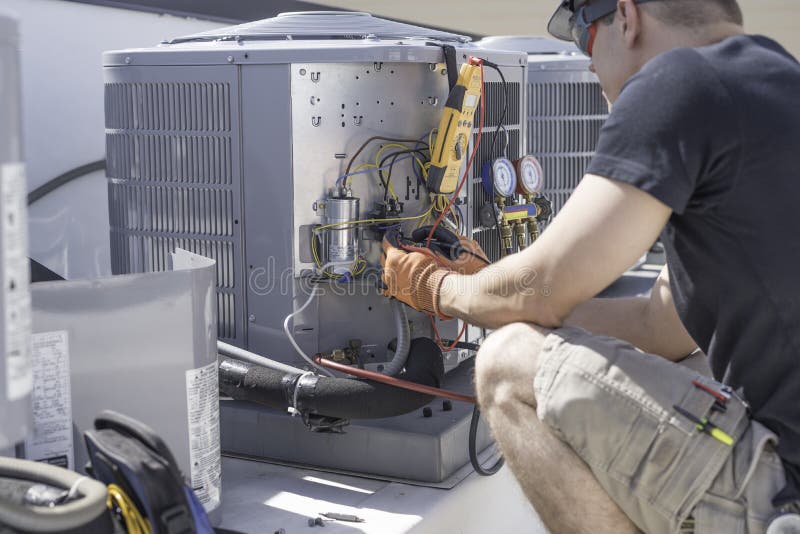Climate Control Chronicles: Mastering Your Home's Heating and Cooling
Climate Control Chronicles: Mastering Your Home's Heating and Cooling
Blog Article

As the seasons change, so do the demands on our home environments. Ensuring comfort year-round becomes a priority for many homeowners. Heating and air conditioning systems stand at the forefront of this seasonal battle, providing the necessary relief from the sweltering heat of summer and the biting cold of winter. Yet, navigating the complexities of these systems can often feel overwhelming, leaving many to wonder how they can optimize their heating and cooling for efficiency and comfort.
This journey through the world of heating and air conditioning will equip you with the knowledge and tools needed to master your home's climate control. From understanding the latest technologies and energy-efficient solutions to practical maintenance tips that can prolong the life of your systems, this guide aims to demystify the process, making it accessible and actionable for everyone. Let's dive into the essential strategies that will help you maintain an ideal indoor climate while also being mindful of energy usage and costs.
Understanding HVAC Systems
Heating, ventilation, and air conditioning, commonly referred to as HVAC, encompasses the technology used to control the indoor environment of homes and buildings. An HVAC system is essential for maintaining comfort throughout the year by regulating temperature, humidity, and air quality. Whether it's the chill of winter or the heat of summer, a well-functioning HVAC system becomes a vital component of any household.
The function of an HVAC system can be broken down into three main parts. The heating component typically includes a furnace, which generates heat, and ductwork that distributes warm air throughout the home. The air conditioning portion works in a similar manner but uses refrigerant to cool and dehumidify the air. Ventilation is crucial as it ensures fresh air circulation, helping to remove indoor pollutants and maintain healthy air quality.
Selecting the right HVAC system depends on several factors, including the size of the space, climate, and energy efficiency needs. Homeowners should consider options such as central air systems, heat pumps, and ductless mini-splits to find the best fit for their unique requirements. Regular maintenance and proper sizing of HVAC systems also play a significant role in their efficiency and longevity, making these aspects key considerations for anyone looking to optimize their home environment.
Tips for Energy Efficiency
One of the simplest ways to improve the energy efficiency of your heating and air conditioning system is to schedule regular maintenance. Clean or replace filters monthly, as dirty filters can restrict airflow and make your system work harder, leading to higher energy consumption. Additionally, having a professional technician inspect your system at least once a year can help identify and fix issues before they become major problems, ensuring your system operates at peak efficiency.
Another effective strategy is to utilize a programmable thermostat. This device allows you to set different temperatures for different times of the day, adjusting automatically when you are away from home or sleeping. By optimizing your temperature settings to match your schedule, you can reduce energy waste significantly. Ensure that you set your thermostat a few degrees lower in winter and a few degrees higher in summer to maximize savings without sacrificing comfort.
Compare Options
Lastly, consider enhancing your home's insulation and sealing any drafts around windows and doors. Proper insulation helps maintain your desired temperature, reducing the workload on your heating and air conditioning systems. Use weather stripping and caulk to seal gaps, and consider adding insulation to attics or basements if needed. A well-insulated home can lead to noticeable reductions in energy consumption, providing a comfortable environment while lowering your utility bills.
Maintenance for Longevity
Regular maintenance is essential for the longevity of your heating and air conditioning systems. Just like any other appliance in your home, these systems require attention to perform optimally. Simple tasks like replacing or cleaning filters can significantly improve efficiency and air quality. A clean filter allows for better airflow, reducing the workload on your unit, which in turn extends its lifespan.
Additionally, scheduling professional inspections at least once a year can catch potential issues before they become major problems. Technicians will clean components, check for leaks, and ensure that all parts are functioning correctly. This proactive approach not only enhances performance but also helps you avoid costly repairs down the road, saving you both time and money.
Finally, don’t forget about the outside components of your systems. For air conditioning units, keeping the area clear of debris and vegetation can improve airflow and efficiency. For heating systems, checking ducts and venting for blockages is crucial. By incorporating these maintenance habits, you can ensure that your heating and air conditioning units continue to serve you well for years to come.
Report this page